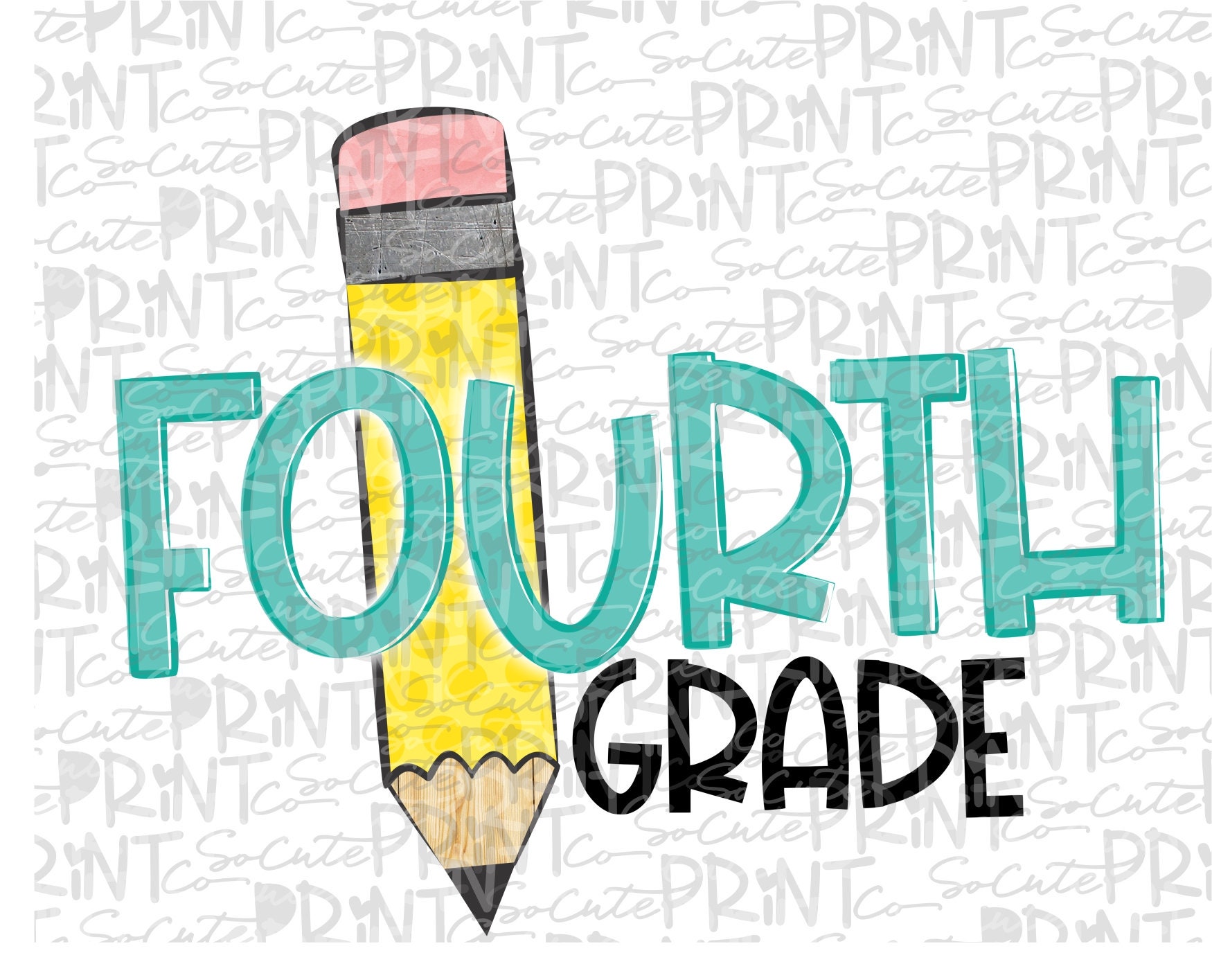
Navigating Fourth Grade: A Comprehensive Guide for Parents and Educators
Fourth grade marks a significant transition in a child’s educational journey. Students are expected to become more independent learners, tackle more complex concepts, and develop stronger critical thinking skills. This article provides a comprehensive guide for parents and educators on how to support children through this pivotal year. We’ll delve into the key academic areas, discuss social-emotional development, and offer practical tips for fostering a successful and enjoyable fourth grade experience.
Academic Expectations in Fourth Grade
The fourth grade curriculum is designed to build upon the foundational skills learned in previous years, preparing students for the challenges of upper elementary school. Here’s a breakdown of the key academic areas:
Reading Comprehension
Reading comprehension takes center stage in fourth grade. Students are expected to read longer and more complex texts, analyze character development, identify themes, and draw inferences. Teachers often use a variety of strategies to improve comprehension, including close reading, annotation, and group discussions.
Parents can support their children by encouraging them to read regularly and engaging in conversations about what they’ve read. Asking open-ended questions like, “What do you think the author was trying to say?” or “How did the character change throughout the story?” can help deepen understanding.
Writing Skills
Fourth grade writing focuses on developing clear and organized writing skills. Students learn to write different types of essays, including narrative, informative, and persuasive pieces. They also work on grammar, punctuation, and vocabulary development.
Encourage your child to write at home, whether it’s journaling, writing stories, or even creating their own comic books. Providing feedback on their writing and focusing on specific areas for improvement can be very helpful.
Mathematics
In mathematics, fourth grade students delve into more advanced concepts, including fractions, decimals, multiplication, division, and geometry. They also learn to solve multi-step word problems and apply their mathematical knowledge to real-world situations.
Parents can support their children by reviewing math concepts at home, using online resources, and playing math-related games. Helping them understand the practical applications of math can make it more engaging.
Science
Fourth grade science typically covers topics such as the scientific method, ecosystems, electricity, and the human body. Students often participate in hands-on experiments and projects to reinforce their learning.
Encourage your child’s curiosity about science by exploring nature together, visiting science museums, and watching educational documentaries. These experiences can spark their interest and deepen their understanding of scientific concepts.
Social Studies
Fourth grade social studies often focuses on the history and geography of the United States. Students learn about important historical events, significant figures, and the different regions of the country.
Parents can support their children by visiting historical sites, reading biographies, and discussing current events. Helping them connect historical events to the present day can make social studies more relevant and engaging.
Social-Emotional Development in Fourth Grade
Beyond academics, fourth grade is also a crucial time for social-emotional development. Students are navigating more complex social relationships, learning to manage their emotions, and developing a stronger sense of self. Understanding these developmental milestones can help parents and educators provide the necessary support.
Peer Relationships
Friendships become increasingly important in fourth grade. Students are more aware of social dynamics and may experience peer pressure. It’s important to help them develop healthy social skills, such as communication, empathy, and conflict resolution.
Encourage your child to participate in extracurricular activities and social events. Help them understand the importance of being a good friend and treating others with respect.
Emotional Regulation
Fourth grade students are learning to manage their emotions more effectively. They may experience frustration, anxiety, or sadness more intensely. It’s important to teach them coping strategies, such as deep breathing, mindfulness, and talking to a trusted adult.
Create a safe and supportive environment where your child feels comfortable expressing their emotions. Help them identify their feelings and develop healthy ways to cope with stress.
Self-Esteem
Developing a positive self-image is crucial in fourth grade. Students are becoming more aware of their strengths and weaknesses. It’s important to focus on their accomplishments, encourage their efforts, and help them develop a growth mindset.
Praise your child for their effort and perseverance, not just their achievements. Help them understand that mistakes are a part of learning and that they can improve with practice.
Practical Tips for Supporting Fourth Graders
Here are some practical tips for parents and educators on how to support fourth grade students:
- Establish a consistent routine: A structured routine can help children feel more secure and organized. Set regular times for homework, meals, and bedtime.
- Create a dedicated study space: Provide a quiet and well-lit space for your child to do their homework. Minimize distractions and ensure they have all the necessary supplies.
- Communicate with teachers: Stay in regular communication with your child’s teacher to discuss their progress and address any concerns.
- Encourage a love of learning: Make learning fun and engaging by incorporating games, activities, and real-world experiences.
- Promote healthy habits: Ensure your child gets enough sleep, eats nutritious meals, and engages in regular physical activity.
- Be patient and supportive: Fourth grade can be a challenging year, so be patient and supportive of your child’s efforts.
Addressing Common Challenges in Fourth Grade
While fourth grade can be a rewarding experience, it also presents some common challenges. Being aware of these challenges and having strategies to address them can help ensure a smoother transition.
Difficulty with Reading Comprehension
Some students may struggle with the increased demands of fourth grade reading comprehension. This can be due to a variety of factors, including vocabulary deficits, difficulty with inference, or lack of background knowledge.
Strategies to address this include providing targeted reading interventions, using graphic organizers to help students visualize the text, and building background knowledge through read-alouds and discussions.
Struggles with Math Concepts
The more complex math concepts introduced in fourth grade can be challenging for some students. This may be due to a lack of understanding of foundational concepts or difficulty with abstract thinking.
Strategies to address this include providing hands-on activities, using manipulatives to help students visualize the concepts, and breaking down complex problems into smaller, more manageable steps.
Behavioral Issues
Some students may exhibit behavioral issues in fourth grade due to increased academic pressure, social challenges, or emotional difficulties.
Strategies to address this include providing a supportive and structured classroom environment, teaching students social skills, and addressing any underlying emotional issues.
Test Anxiety
The increased emphasis on testing in fourth grade can lead to test anxiety for some students. This can negatively impact their performance and overall well-being.
Strategies to address this include teaching students relaxation techniques, providing practice tests, and emphasizing the importance of effort over outcome. [See also: Overcoming Test Anxiety in Children]
The Importance of Parent-Teacher Collaboration
Effective parent-teacher collaboration is essential for supporting fourth grade students. When parents and teachers work together, they can create a consistent and supportive learning environment that promotes student success.
Parents can communicate with teachers through email, phone calls, or scheduled meetings. They can also attend school events and volunteer in the classroom. Teachers can provide parents with regular updates on their child’s progress and offer strategies for supporting their learning at home.
Preparing for Fifth Grade
Fourth grade serves as a crucial bridge to the challenges of fifth grade and middle school. By focusing on academic growth, social-emotional development, and effective communication, parents and educators can help students build the skills and confidence they need to succeed in the years ahead.
As the year progresses, consider discussing expectations for fifth grade with your child. This might include the types of classes they’ll take, the increase in homework, and the importance of organization. Preparing them mentally and emotionally can help ease the transition and set them up for success.
In conclusion, navigating fourth grade requires a collaborative effort between parents, educators, and students. By understanding the academic expectations, addressing social-emotional needs, and fostering a love of learning, we can help children thrive during this important year and beyond. This comprehensive guide aims to equip you with the knowledge and tools necessary to support your fourth grade student on their path to success.

